UNVEIL OF AFRICA

Country : GHANA
Capital : Accra
Area : 238,535 km2
Population : 24, 233, 431
Ghana is uniquely located on the West Coast of Africa in the Gulf of Guinea. In geographical terms Accra, the capital city of this peaceful West African Republic, sits more or less on the equator (latitude 'zero') as well as on longitude zero which is also known as Greenwich Meridian Timeline (GMT). This makes Accra just about the centre of the earth!. Ghana officially the Republic of Ghana, is bordered by Côte d'Ivoire (Ivory Coast) to the west, Burkina Fasoto the north, Togo to the east, and the Gulf of Guinea to the south. The wordGhana means "Warrior King" and is derived from the ancient Ghana Empire.
Ghana was inhabited in pre-colonial times by a number of ancient predominantly Akan kingdoms, including the Akwamu on the eastern coast, the inland Ashanti Empire and various Fante and non-Akan states, like the Ga and Ewe, along the coast and inland. The Mande-Gur speaking groups in the north of the country established several Islamized states, in particular those of Dagbon and Gonja, and were the middle-men in trade between other larger sahelian Muslim states (such as Mali and Songhai) and the early Akan kingdoms, especially in the gold, slave and salt trade. Trade with European states flourished after contact with the Portuguese in the 15th century, and the British established the Gold Coast Crown colony in 1874.
Beach in Ghana
The Gold Coast achieved independence from the United Kingdom in 1957, becoming the first sub-Saharan African nation to do so, and the name Ghana was chosen for the new nation to reflect the ancient Empire of Ghana, which once extended throughout much of west Africa. Ghana is a member of theSouth Atlantic Peace and Cooperation Zone, the Commonwealth of Nations, theEconomic Community of West African States, the African Union, and an associate member of La Francophonie. Ghana is the second largest producer of cocoa in the world and is home to Lake Volta, the largest artificial lake in the world by surface area.
Since olden times, the country has seen civil wars, ethnic violence, foreign attacks and rules and thus lots of hardships. It took many years and a lot of blood sweat and tear for the countrymen to gain independence. It was in 1957 that all the injustice and misery towards the locals ended when Ghana was set independent by its last rulers, the British. English is the national language of the country with Ewe, Akan and other African languages widely spoken. Majority of the, 23.8 million population, is Christian followed by Muslims. Other African religions are also practiced. Ghanaians became the first Black Africans to have gained independence from colonial rule. The reason for all these fights was the gold mines of Ghana. The 238,533 sq km country was the biggest and is still one of the biggest producers of Gold. Of course, all the conquerors of the land had come with the intention of trading gold, ivory and slaves. Apart from gold, Ghana is extremely rich in other natural resources like cocoa, timber, electricity, diamond, bauxite and manganese. Adding to this, Ghanaian education system is not only up to the mark but also easily and widely available.
Unfortunately, since its independence in 1957, the country has faced maltreatment by corrupt politicians. It has seen two military coups, one in 1966 and the other in 1981. This led towards economic instability and mismanagement. It was the 1966 coup that ended the rule of country's first president and pan-African hero Kwame Nkrumah. The 1981 coup, however, saw betterment in economy and democracy. Typical Village SceneSince 1992, country has seen an apparently democratic rule and political stability becoming a role model for West African nations. However, it still faces violence and corruption. The current president of the country, Mr. Mills, was democratically elected in 2008. He was born on 21st July 1944 and belongs to the National Democratic Congress. He has been a former hockey player of Ghana's national team. The country is world's second largest producer of cocoa and in 2007, oil was also discovered. During the economic recession, Ghanaian currency, Cedi, was one of the most stable currencies. Ghana plays an important peace keeping role in Africa with its forces deployed in Ivory Coast, Liberia, Sierra Leone and DR Congo. The media of the country is highly independent and lively. Its media is often seen openly criticizing government policies and highlighting any issues that they wish to. Radio is the most common medium in Ghana so far, with television becoming increasingly popular. There are a number of radio and television channels and news papers.
HISTORY:
There is archaeological evidence which shows that humans have lived in present-day Ghana from about 1500 BC.. Oral tradition states that many of Ghana's current ethnic groups such as the multi-ethnic Akan, the Ga and the Ewe arrived around the 13th century AD. However, the Mamprusi are believed to be the first settlers, having been fully established by 1210 AD, before the arrival of the other ethnic groups Modern Ghanaian territory includes what was the Empire of Ashanti, one of the most influential states in sub-Saharan Africa prior to colonial rule. Akan migrants moved southward and founded several nation-states including the first great Akan empire of theBono, which is now known as the Brong-Ahafo Region. Much of the area of modern-day south central Ghana was united under the Empire of Ashanti of the Ashanti people, a branch of the Akan people, by the 16th century. The Ashanti government operated first as a loose network and eventually as a centralized kingdom with an advanced highly specialized bureaucracy centered in Kumasi. It is said that at its peak, the Asantehene could field 500,000 troops and had some degree of military influence over all of its neighbors. The Ga people developed an effective unit around 1500, and the Gonja,Dagomba and Mamprusi fought for political power in the 1620s.Early European contact by the Portuguese, who came to Ghana in the 15th century, focused on the extensive availability of gold. The Portuguese first landed at a coastal city inhabited by the Fante nation-state and named the place Elmina, which means "the mine" in Portuguese. In 1481, King John II of Portugal commissioned Diogo d'Azambujato build Elmina Castle, which was completed in 3 years. Their aim was to trade in gold,ivory and slaves, consolidating their burgeoning political and economic power in the region.
By 1548, the Dutch had joined them and built forts at Komenda and Kormantsi. In 1617, they captured the Olnini Castle from the Portuguese and Axim in 1642 (Fort St Anthony). Other European traders joined in by the mid-17th century, largely English, Danes and Swedes. British merchants, impressed with the gold resources in the area, named it the Gold Coast, while French merchants, impressed with the trinkets worn by the coastal people, named the area to the west "Côte d'Ivoire", or Ivory Coast.
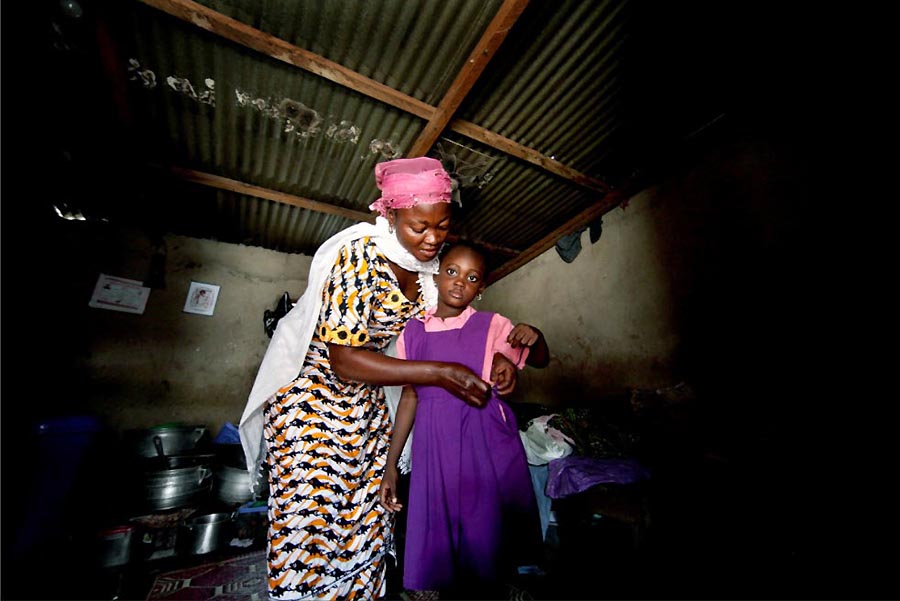
More than thirty forts and castles were built by the Portuguese, Dutch, British and Spanish merchants. The Gold Coast was known for centuries as 'The White Man's Grave' because many of the Europeans who went there died of malaria and other tropical diseases. After the Dutch withdrew in 1874, Britain made the Gold Coast aprotectorate. Following conquest by the British in 1896 until independence in March 1957, the territory of modern Ghana excluding the Volta Region (British Togoland), was known as the Gold Coast.
Independence Arch in the Capital City
Many wars occurred between the colonial powers and the various nation-states in the area including the 1806 Ashanti-Fante War and the continuous struggle by the Ashanti against the British, which ended in 1901 with the Third Ashanti-British War (1900–1901). Even under colonial rule the chiefs and people often resisted the policies of the British; however, moves toward de-colonization intensified after World War II. In 1947 the newly formed United Gold Coast Convention (UGCC) called for "self-government within the shortest possible time." After rioting increased in 1948, the members of the United Gold Coast Convention were arrested, including future prime minister and president Kwame Nkrumah. Later Nkrumah formed his own party, the Convention People's Party (CPP) with the motto "self government now." He began a 'Positive Action' campaign and gained the support of rural and working class people. He was again imprisoned for being the leader of a party that caused boycotts, strikes and other forms of civil disobedience. After winning a majority of seats in theLegislative Assembly in 1952, Nkrumah was released and appointed leader of government business. After further negotiations with Britain, on March 6, 1957 at 12 a.m. Nkrumah declared Ghana "free forever".
Keoladeo National Park
The flag which consists of the colours red, gold, green and the black star became the new flag in 1957. Designed by Theodosia Salome Okoh, the red represents the blood that was shed towards independence, the gold represents the mineral wealth of Ghana, the green symbolises the rich agriculture and the black star is the symbol of African emancipation. Formed from the merger of the Gold Coast and British Togoland by a United Nations sponsored plebiscite in 1956, Ghana became the first sub-Saharan African country to gain its independence in 1957.
Cape Cost Castle
Although his goal of African unity never realised, Osagyefo Dr. Kwame Nkrumah, as he is now known, played an instrumental part in the founding of the Organisation of African Unity, which was succeeded in 2002 by the African Union. His achievements were recognised by Ghanaians during his centenary birthday celebrations, and the day was instituted as a public holiday in Ghana. Dr. Nkrumah's government was subsequently overthrown by the military while abroad in February 1966. Former Central Intelligence Agency employee John Stockwell alleges that the CIA had an effective hand in forcing the coup.
A series of subsequent coups from 1966 to 1981 ended with the ascension to power ofFlight Lieutenant Jerry Rawlings in 1981. These changes resulted in the suspension of the constitution in 1981 and the banning of political parties. The economy suffered a severe decline soon after, and many Ghanaians migrated to other countries. Although most migrating Ghanaians went to Nigeria, the Nigerian government deported about a million Ghanaians back to Ghana in 1983.
Rawlings negotiated a structural adjustment plan with the International Monetary Fund and changed many old economic policies, and the economy began to recover. A new constitution restoring multi-party politics was promulgated in 1992, and Rawlings was elected as president then and again in 1996. The Constitution of 1992 prohibited him from running for a third term, so his party, the National Democratic Congress, chose his Vice President, John Atta Mills, to run against the opposition parties. Winning the 2000 elections, John Kufuor of the New Patriotic Party was sworn into office as president in January 2001 and beat Mills again in 2004, thus also serving two terms as president.
In 2009, John Atta Mills took office as President of Ghana with a difference of about 40,000 votes (0.46%) between his party, the National Democratic Congress and the New Patriotic Party, marking the second time that power had been transferred from one legitimately elected leader to another and securing Ghana's status as a stable democracy.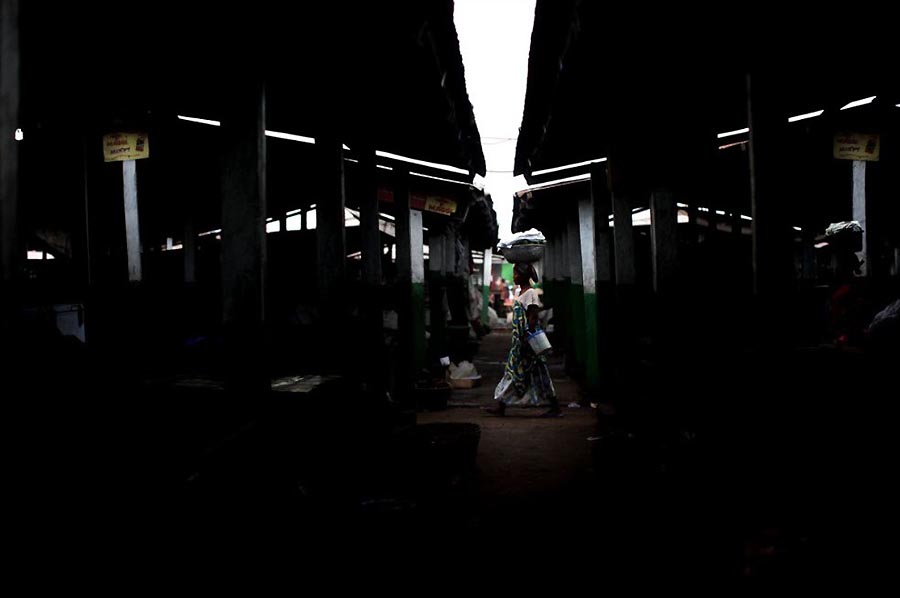
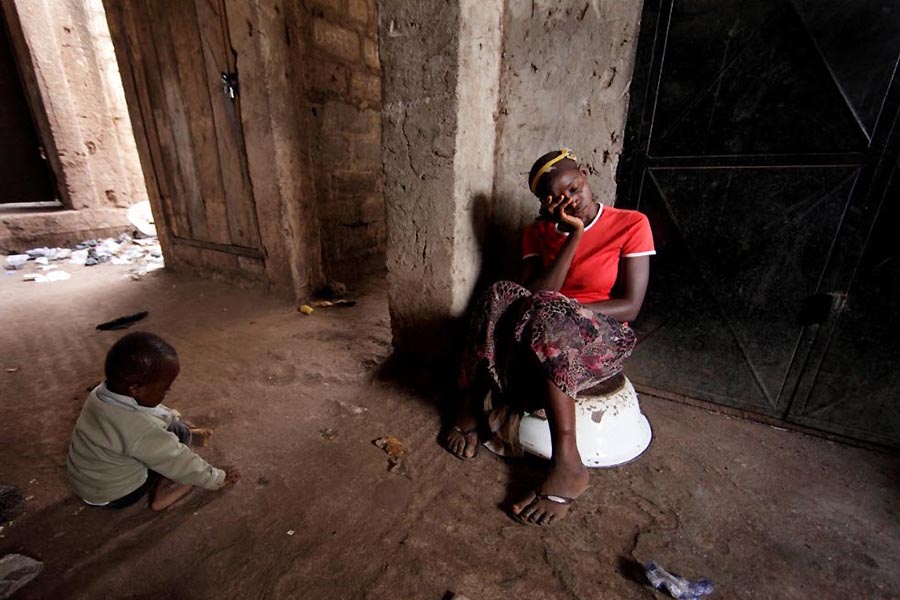
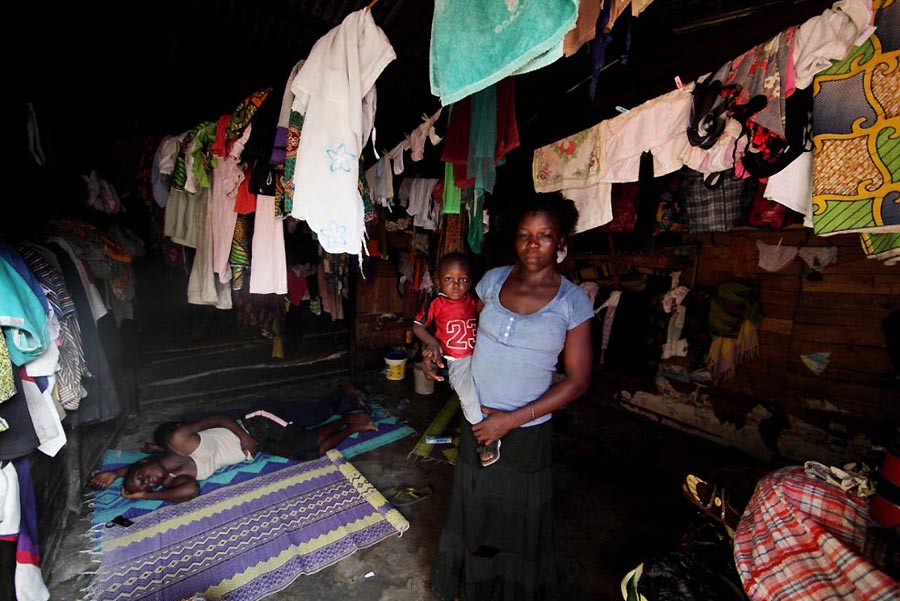
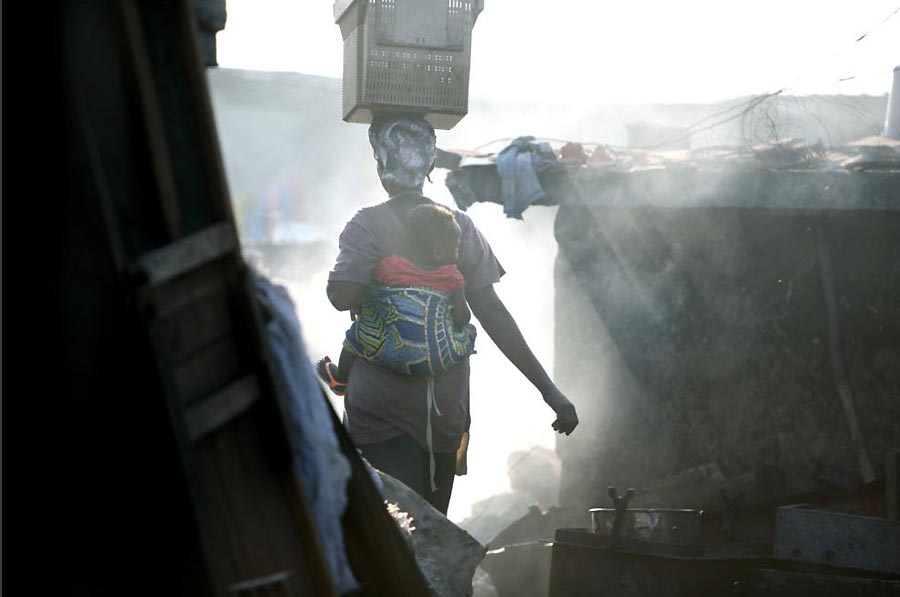
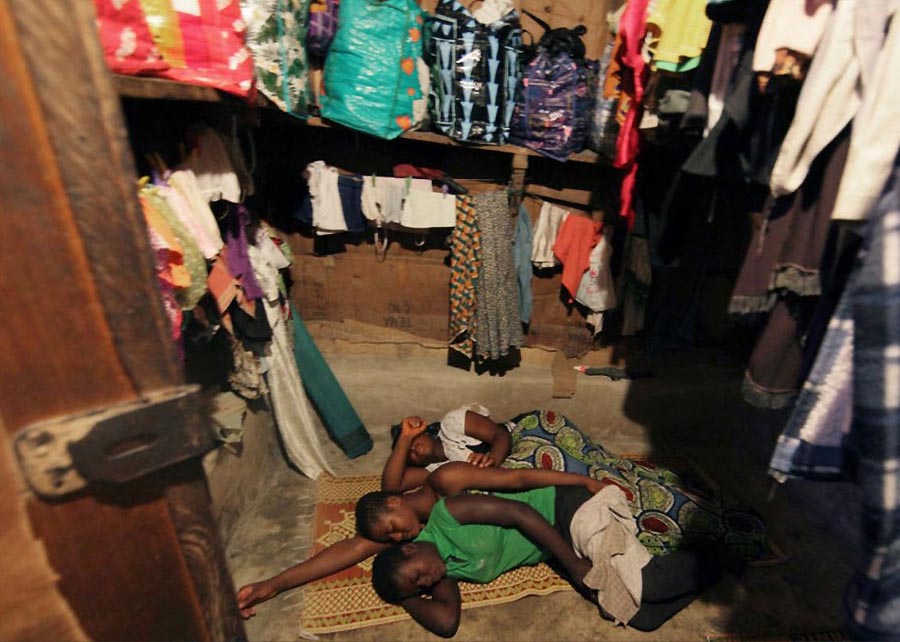
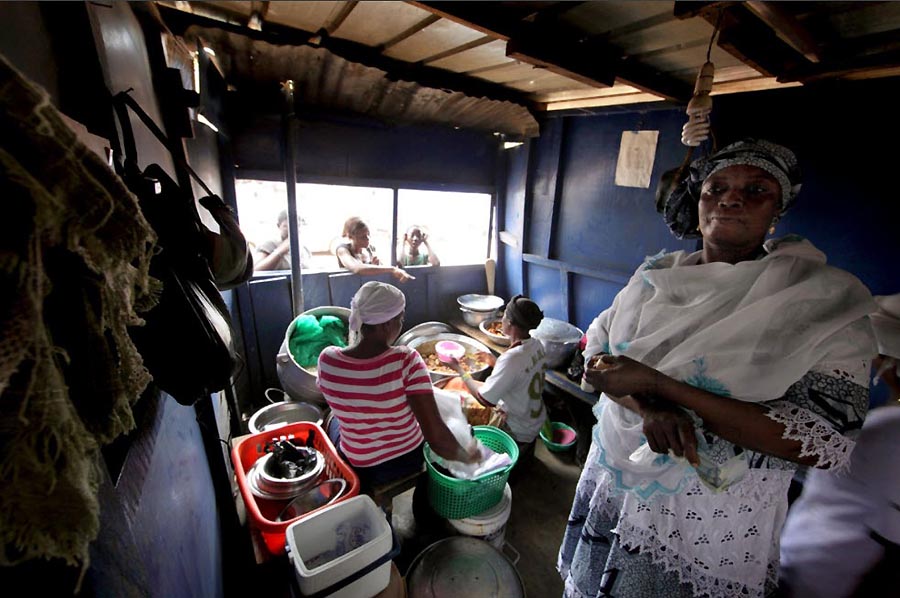
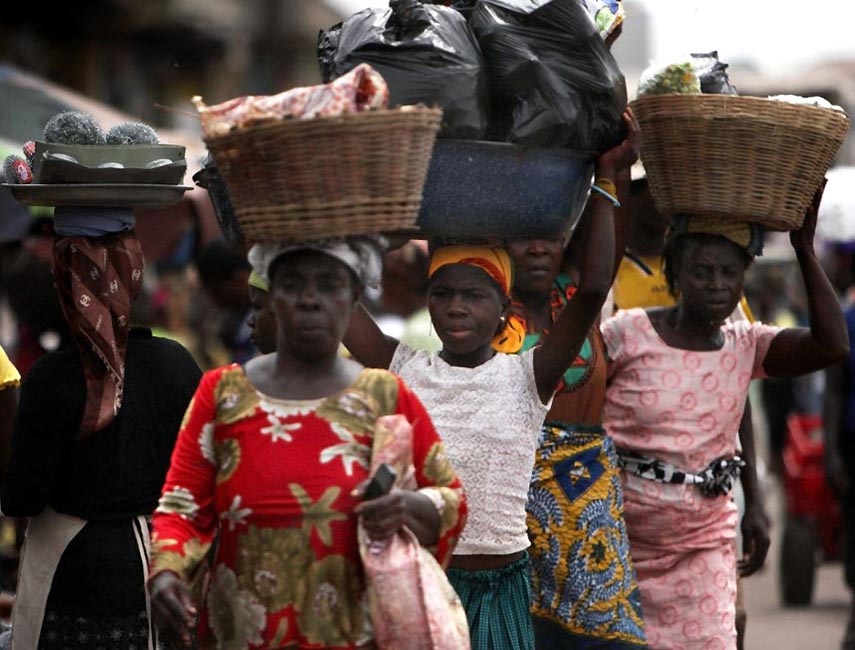
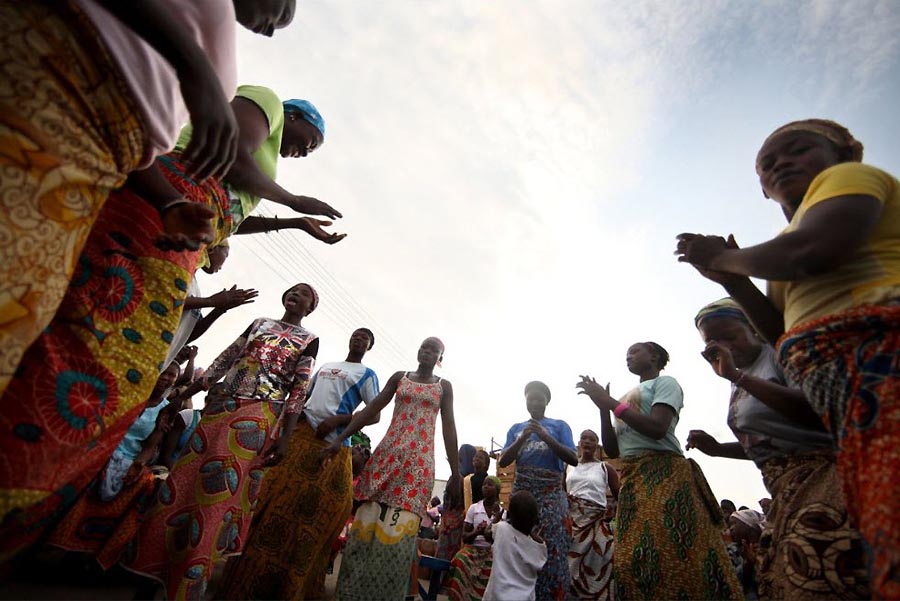
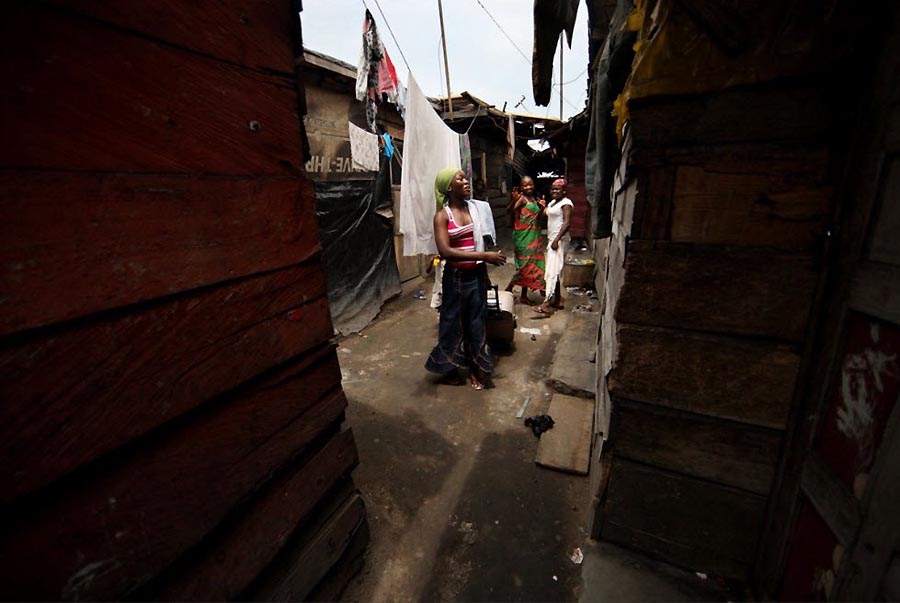
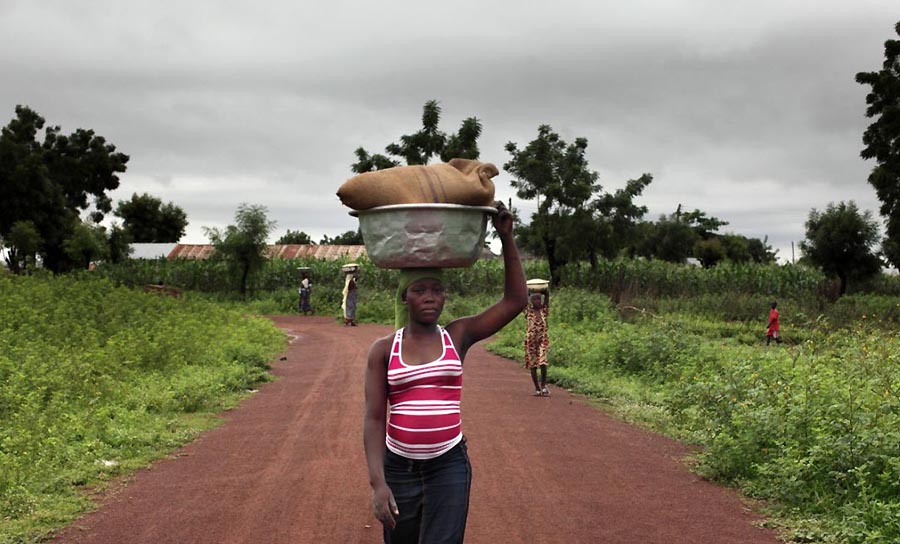
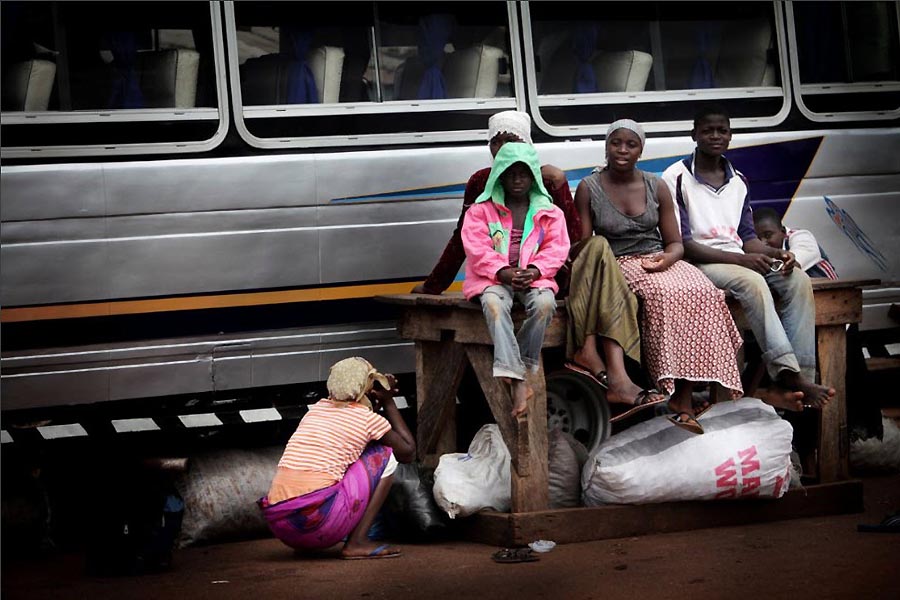
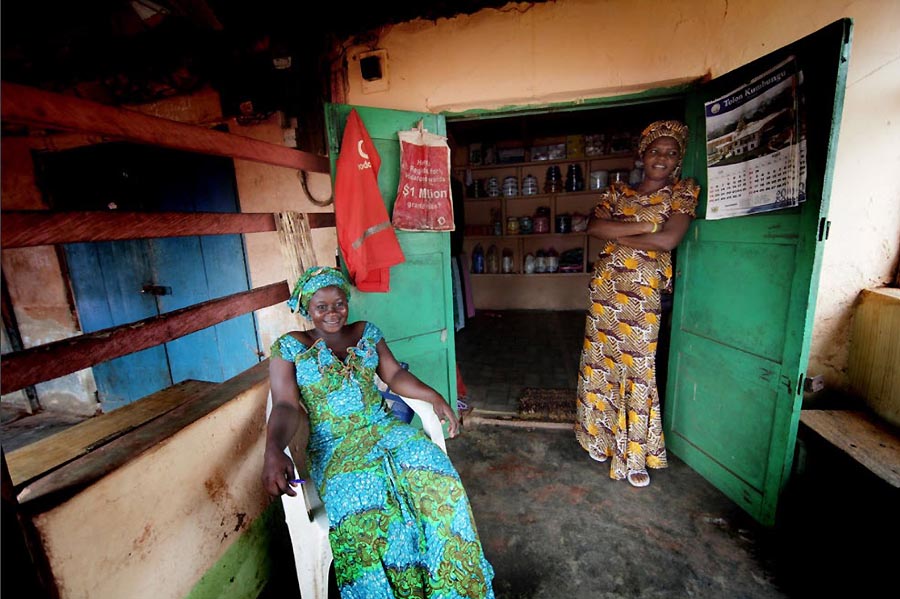 Mine Worker
Mine WorkerChief of the Village
Environmental issues in Ghana are similar to those in many neighbouring African countries including recurrent drought in the north which severely affects agricultural activities; deforestation; overgrazing; soil erosion; poaching and habitat destruction which threatens wildlife populations; water pollution; and inadequate supplies of drinking water.
Ghana is party to a number of international environmental agreements including Biodiversity, Climate Change, Climate Change-Kyoto Protocol, Desertification, Endangered Species, Environmental Modification, Hazardous Wastes, Law of the Sea, Ozone Layer Protection, Ship Pollution, Tropical Timber 83, Tropical Timber 94 and Wetlands.
Coconut Plantation in GhanaOil Palm Plantation in Ghana
Ghana Cuisine :
Kenkey & Fish is the main traditional food eaten by the people of Accra. It is also the most common food found in most of the regions. It is a stew with hot pepper fried fish or stew. In these days most Kenkey bars serve soup or stews.
Ampesi is most common food found in Ashanti region about form Fufu. It can be cassavas, cocoyam, and yam plantain with groundnut stew or green leaves stews. Ampesi is found in every part of the country now. It is the same food but each region has its way of preparing the food.
Tuo Zaafi is another local food mostly done in the northern part of Ghana although recently it is being prepared in hotels and other local fast food bars across the country. It is eaten hot after it has been cooked. The soup is very special and practical. It is typical Ghanaian food and is normally green in colour because of the leaves they use to give it flavour. You will love it.

Barfroat Ashanti, a Ghana Food

Food named as Red Red

Tuo Zafi - a local food
Sunset in Keoladeo National Park
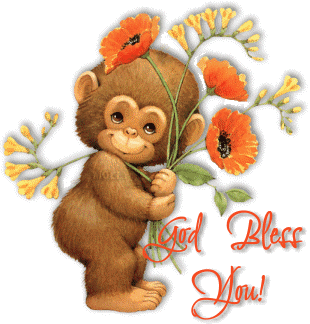
Thanks & Regards, Raj. Kumar (Information/Images courtesy to various Websites & Tuna)
www.keralites.net |
__._,_.___


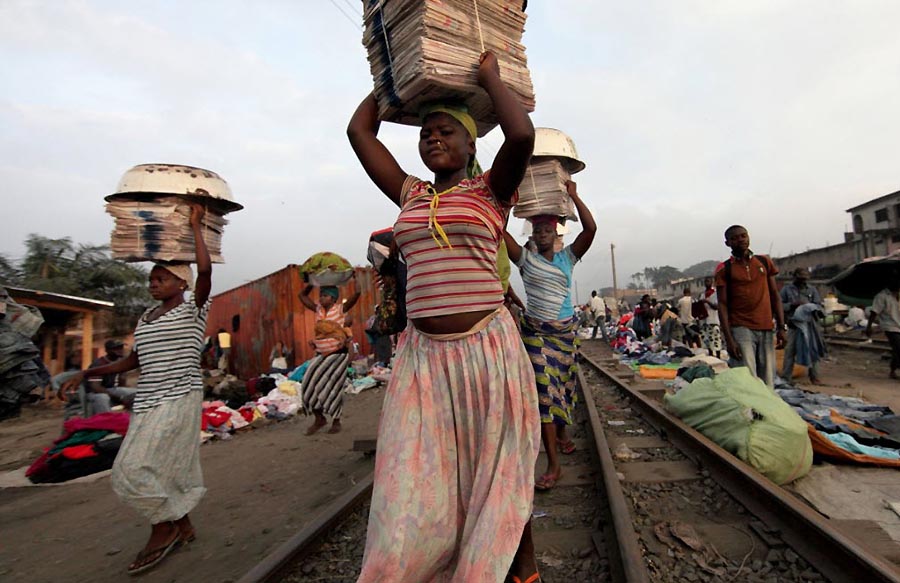





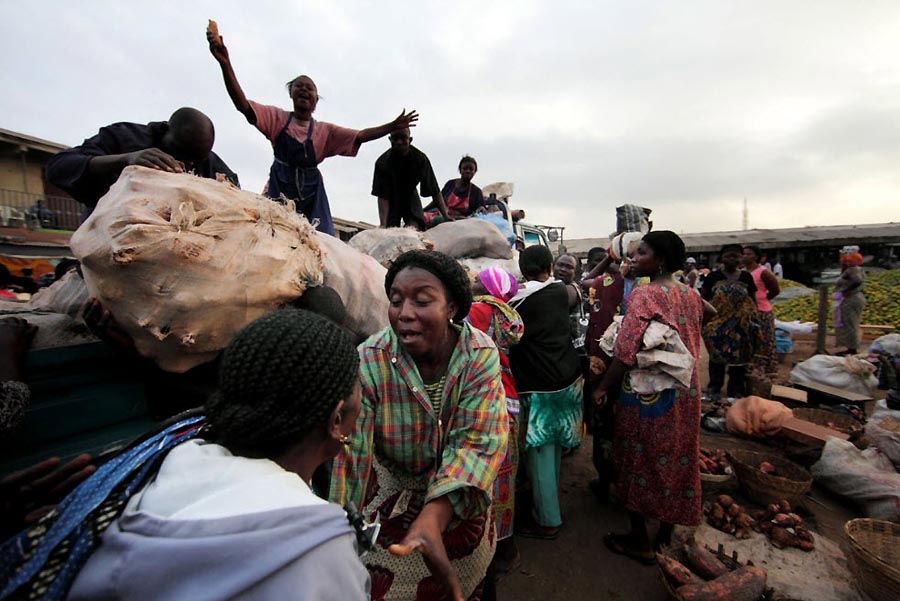
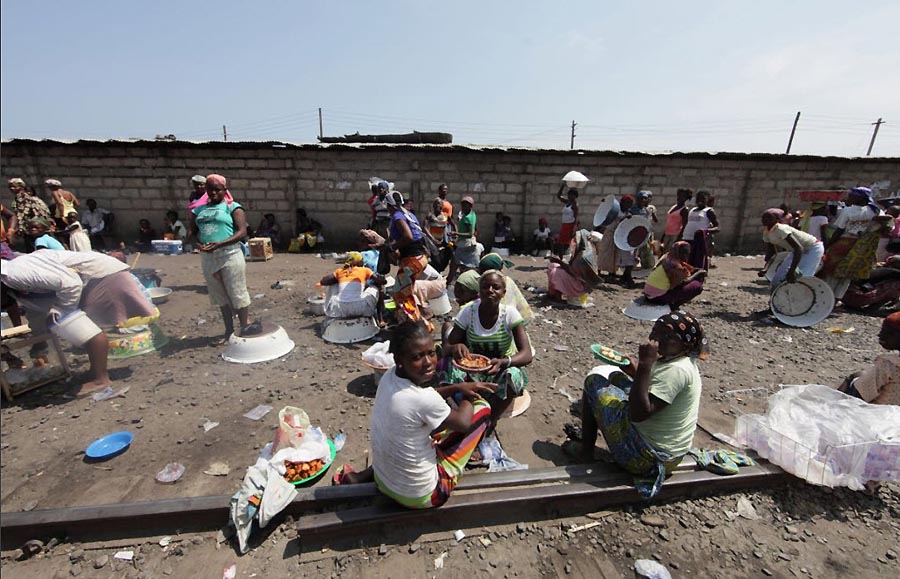

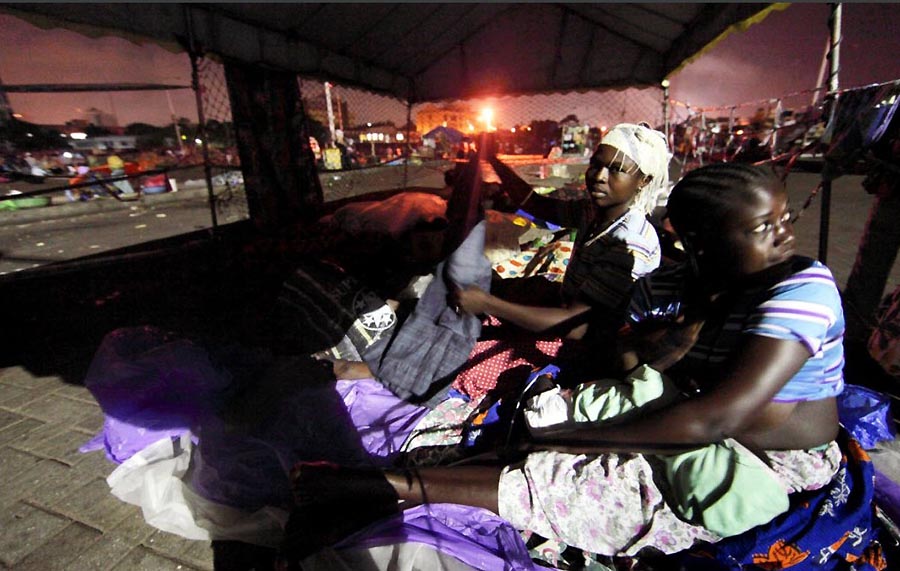
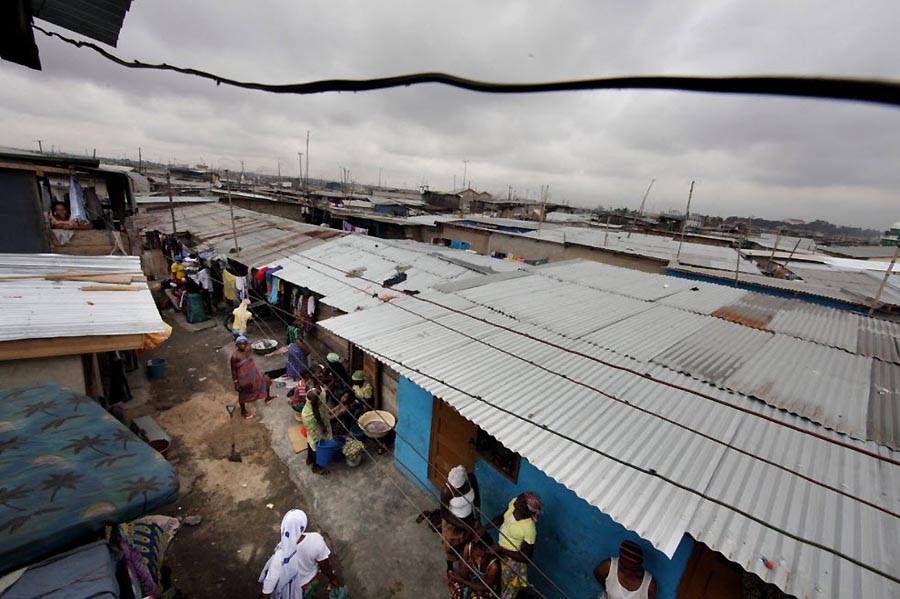
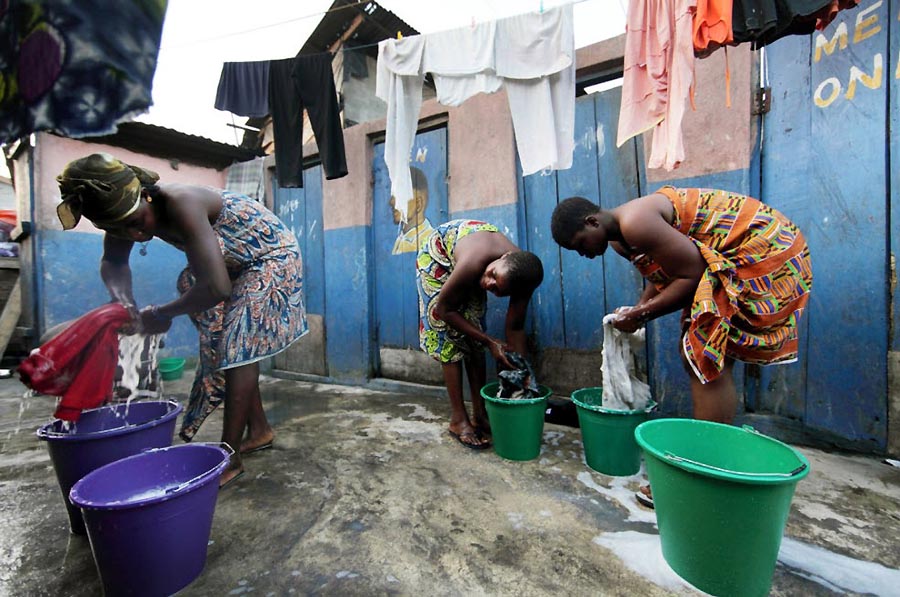
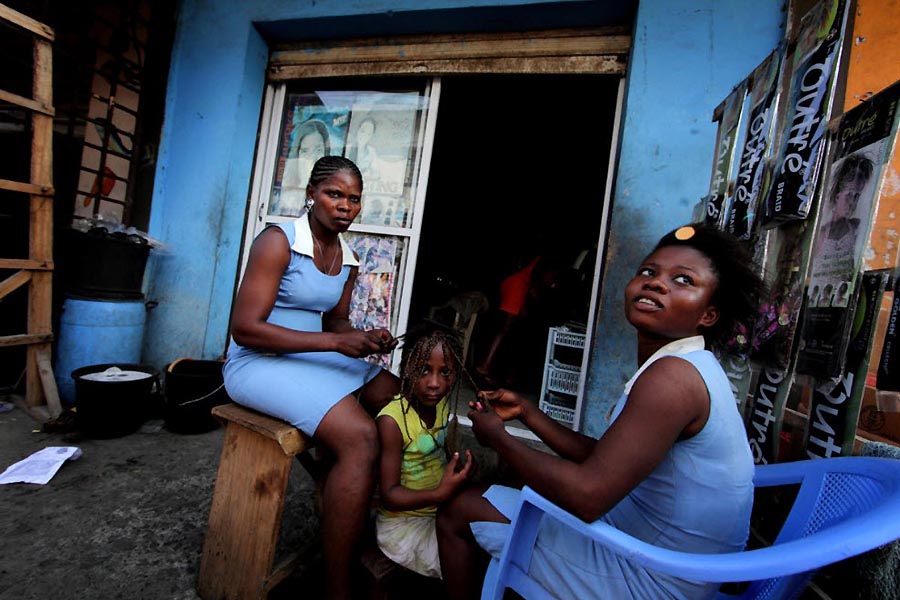
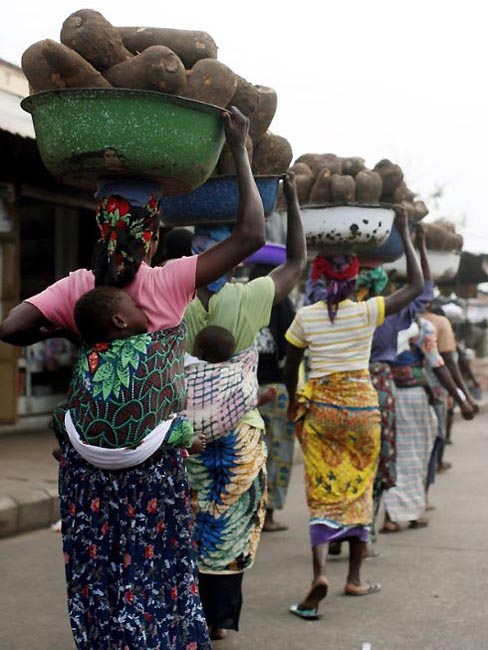
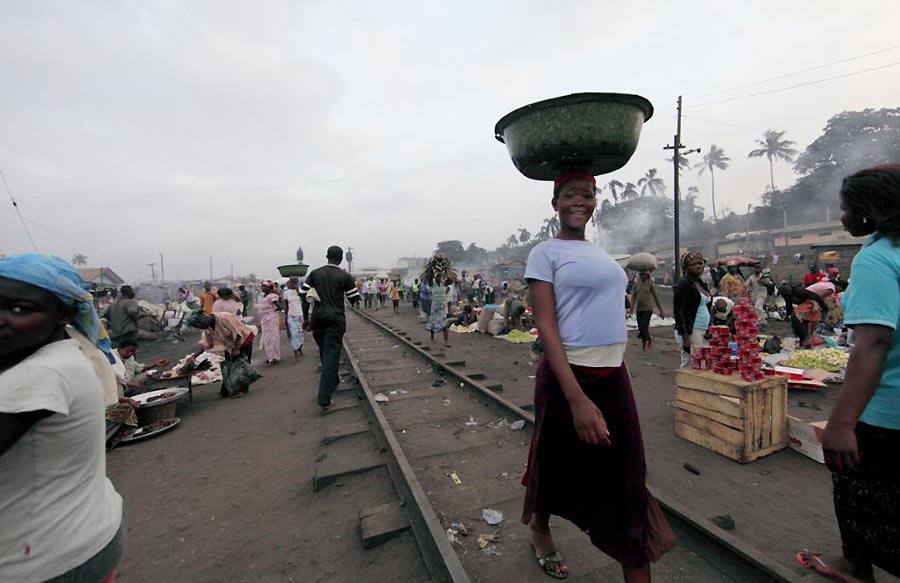
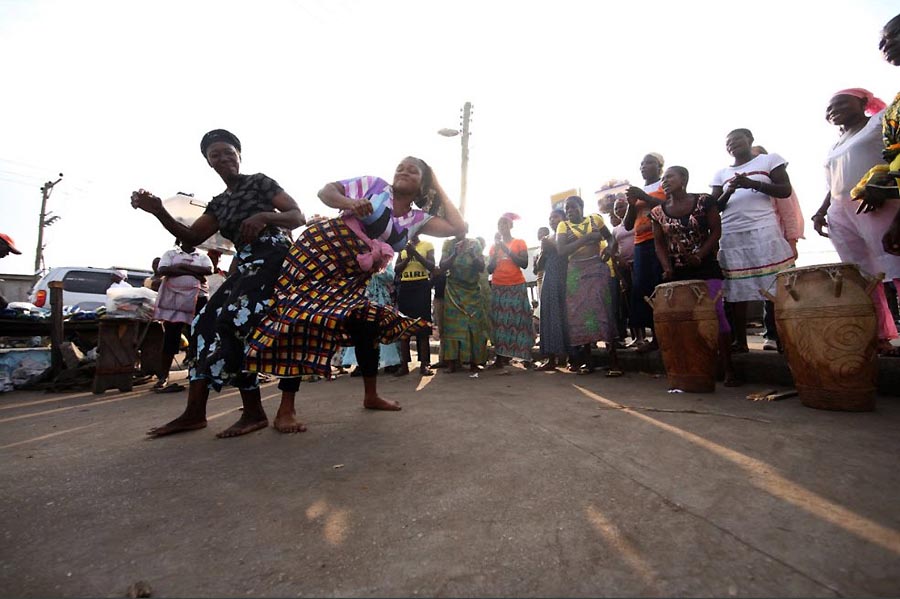
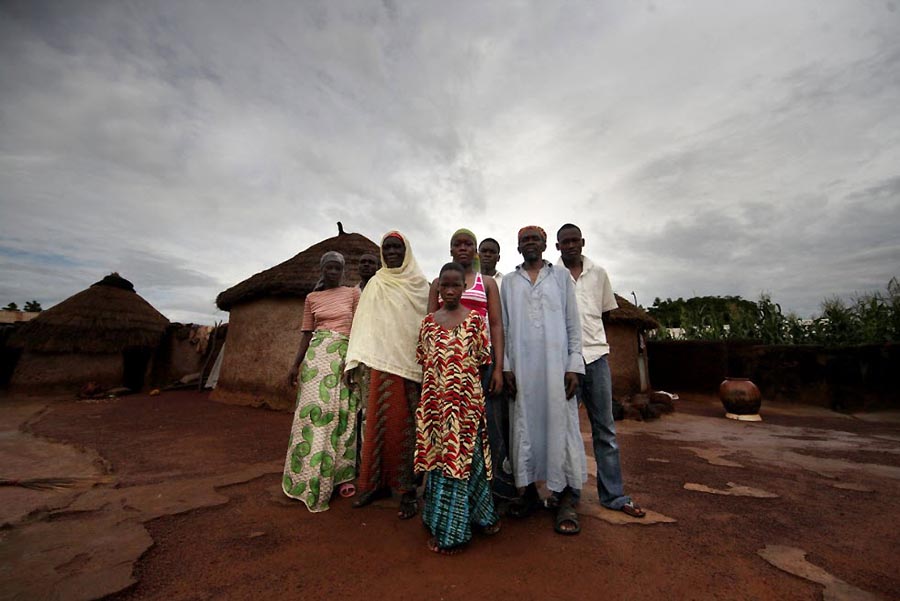
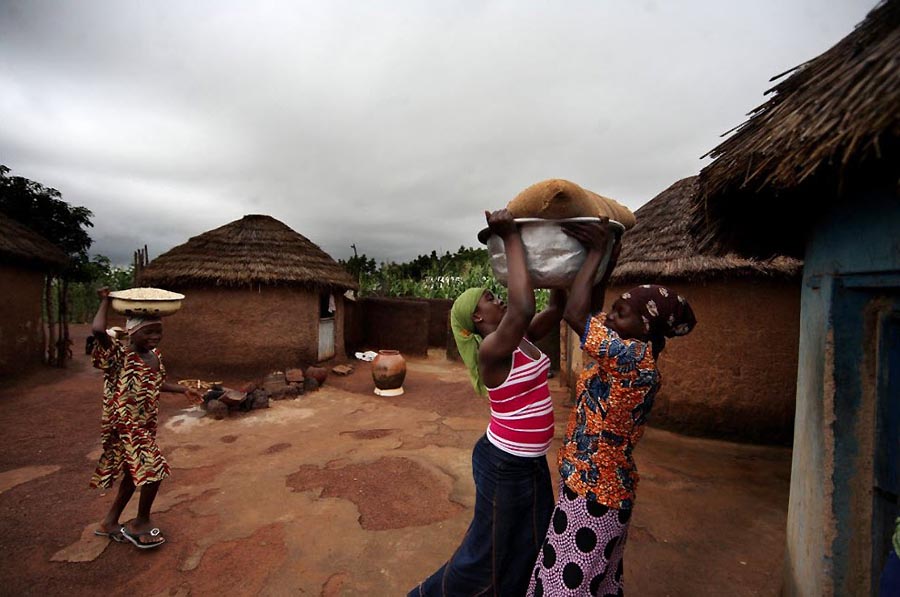
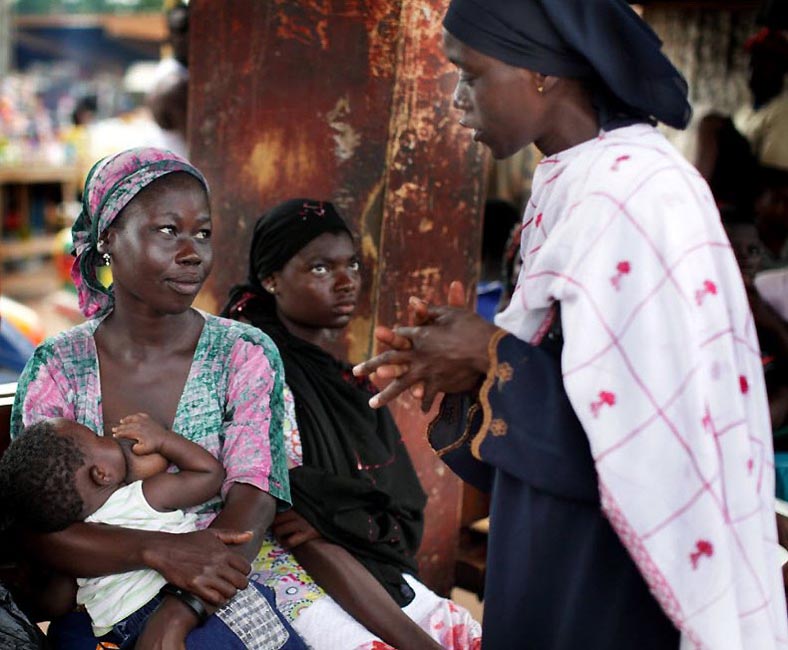




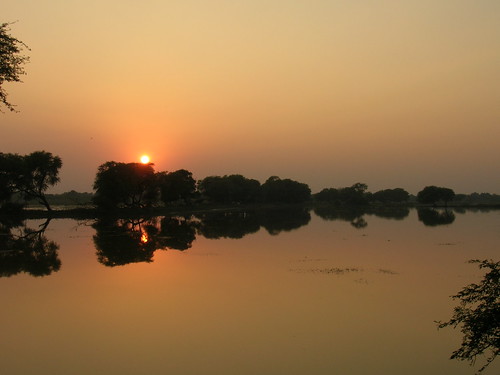





No comments:
Post a Comment